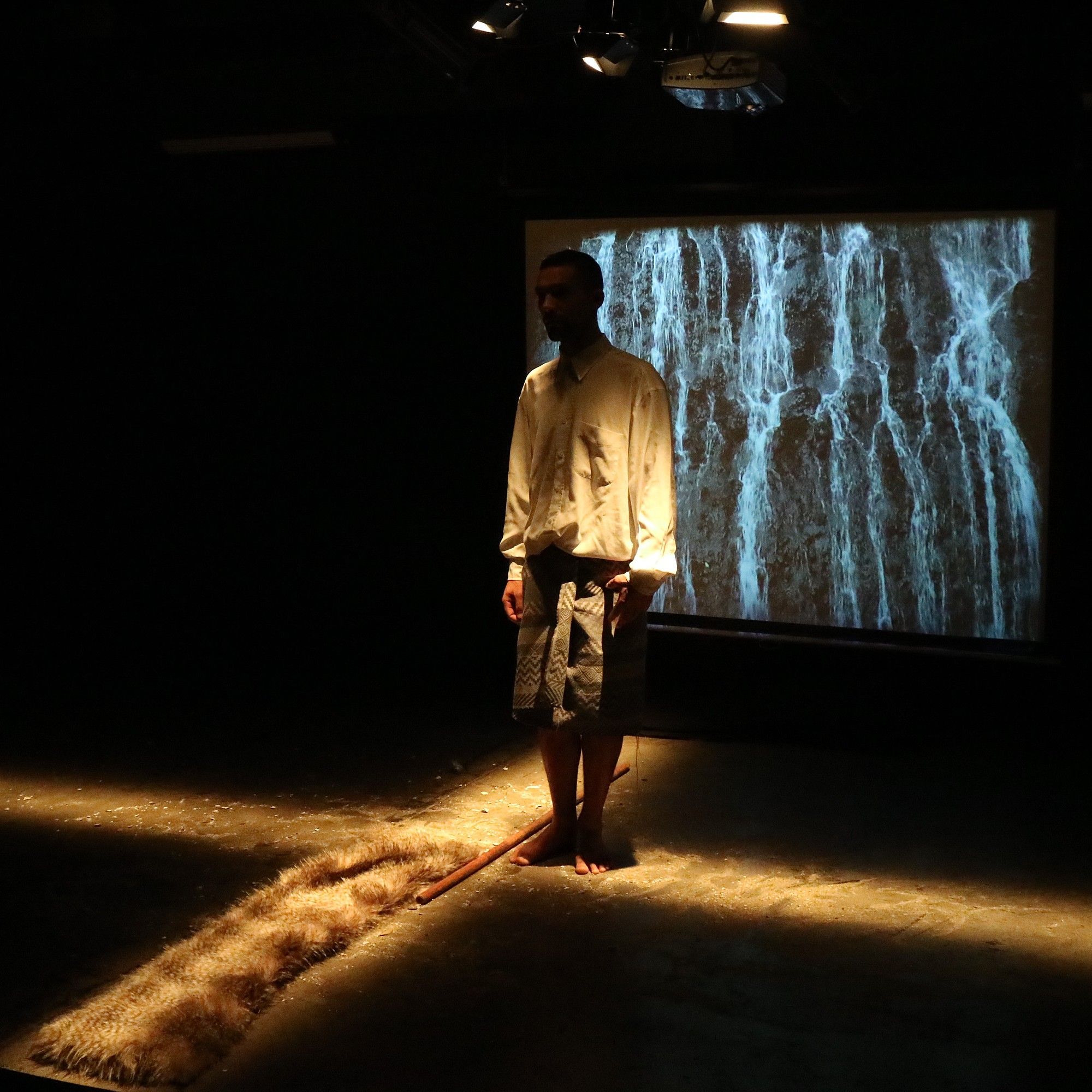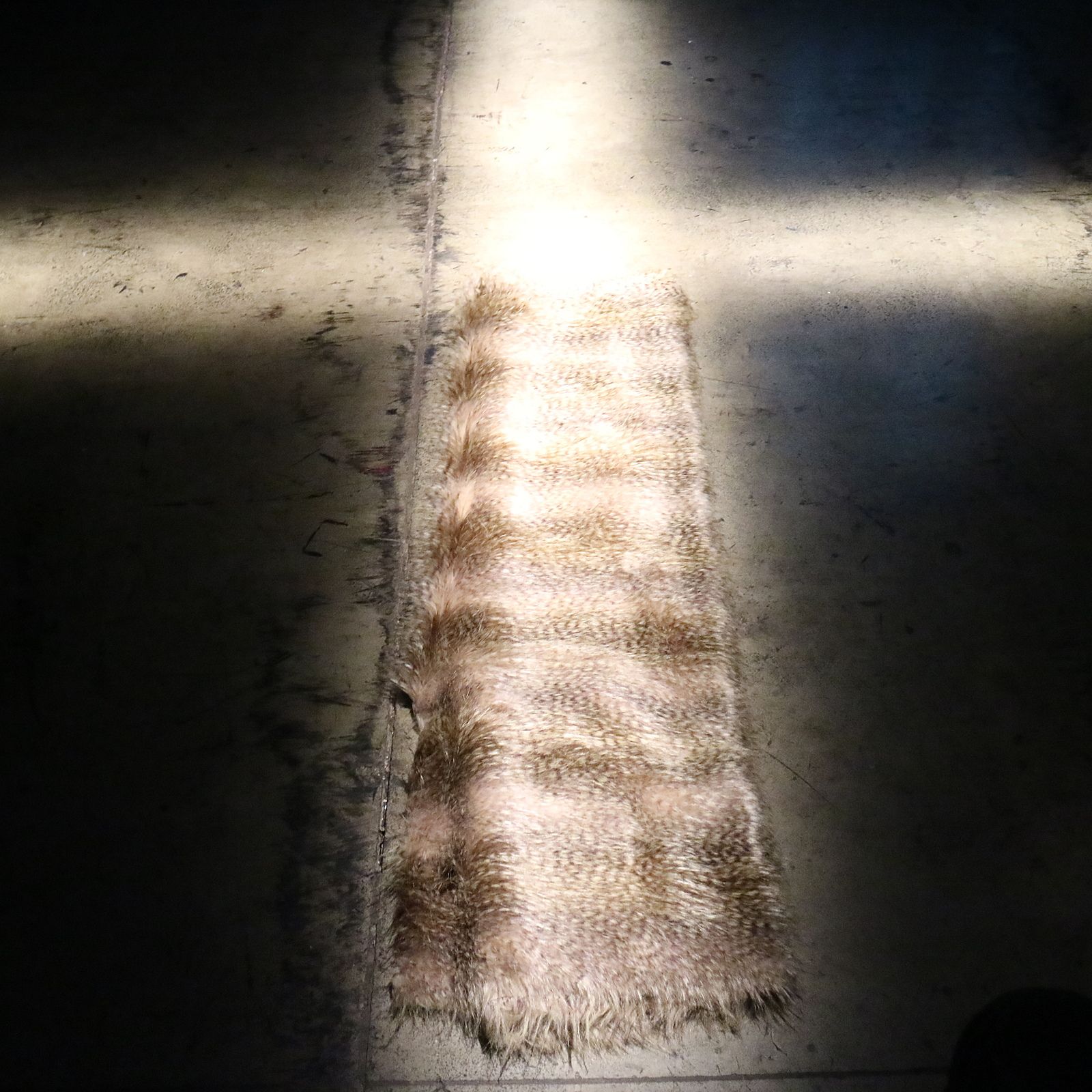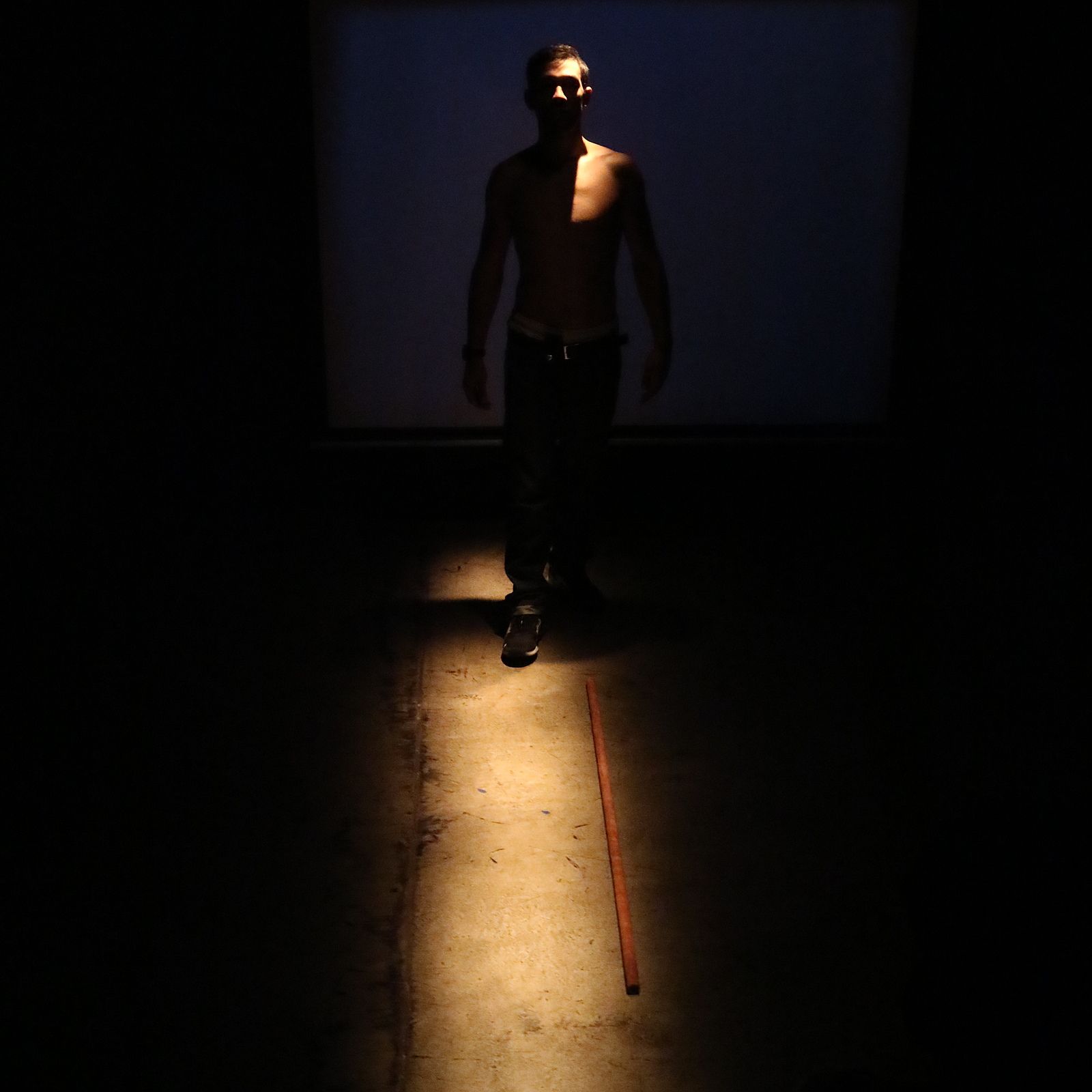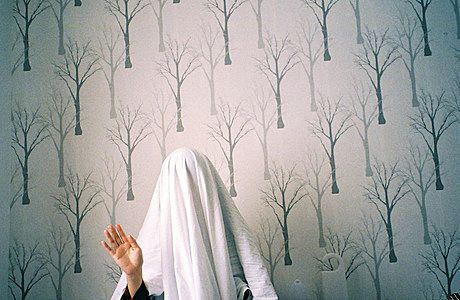Fresh Mourning: A Review of Poropiti
Madeleine de Young reviews a new interdisciplinary work from Tola Newbery and Mara TK.
Madeleine de Young reviews a new interdisciplinary work from Tola Newbery and Mara TK.
Poropiti is a meditation on the history of Aotearoa – a visual poem that contrasts the idea that history is a linear sequence of events with the messy reality of politically influenced remembering. In Aotearoa, the folds of history are numerous and complicated. Many stories have been forgotten and suppressed, often deliberately.
Actor Tola Newbery and musician Mara TK come together to reflect on these things that aren’t taught in schools: from the time of Tāne and the gods; to the time of birds and Māori alone; to contact; to conflict; to attempted peace and desolation at Parihaka. Then onto today, and to the people of loss: lost lands, rights, stories, identities. And to the people who call the streets their home.
These moments are depicted through movement and song. The pace is slow and deliberate and is joined by screen projections to shape our sense of when and where we are. Images merge of land, sea and sky. Clippings of history and the contemporary move across the screen: the fish and chip shop, empty ball courts, dark streets.
As Poropiti shifts from past to present, the performers swap korowai for shirts and then trackies and caps. The sand-covered floor is replaced with a blanket for the men to sit on.
While the duo navigate the past through to the present, there is a strong sense of revelation in their storytelling. Together they explore the connection between then and now and the murky impact of the forgotten times in between. It’s as if the memories that they’re sharing are newly rediscovered - bringing with them a fresh sense of mourning for what has been lost, and what is left now.
The historic tragedy of Parihaka lies at the centre of Poropiti. The poropiti were prophets of that Taranaki community who set out in the 1870’s to create a peaceful Māori society. It was the largest Māori settlement in the country and then on the 5th of November 1881 it was sacked. Children sang as soldiers entered the marae. When the soldiers left, all that was left was death and loss – the prophets were dead and the people imprisoned. Then they weren’t talked about. The modern remembering of Parihaka in mainstream New Zealand is still fresh, dredged up by the Waitangi Tribunal in 1996, and thrust into the public eye in 2011 – the 130th anniversary of the atrocity.
Newbery and TK do not go into great narrative detail about this event in history. Instead they give shape to the sensations of memory with slow, deliberate choreography and mournful song. This song and spoken word is contrasted with moments of unexpected deep silence.
Poropiti has the potential for a loaded soundscape. Off the bill you expect it – Mara TK is an incredible musician, known for both his solo work and with the band Electric Wire Hustle, yet more often than not, the audience is left in silence – a stillness only broken by the sound of punters in the bar outside. These silences linger, lending weight to the sense of rediscovery that hangs over the production. It asks the audience to be contemplative – to feel, as much as to think.
While drawing on history, Poropiti never explains the past. Rather, it asks you to acknowledge the wounds within our collective histories while still giving the viewer space to negotiate what that means on a personal level. In doing so, Poropiti creates a safe space for discovery – an alternative framework for the people of Aotearoa to confront our stories.
Poropiti runs from June 20 – 24 at The Basement Theatre. Tickets available here.



